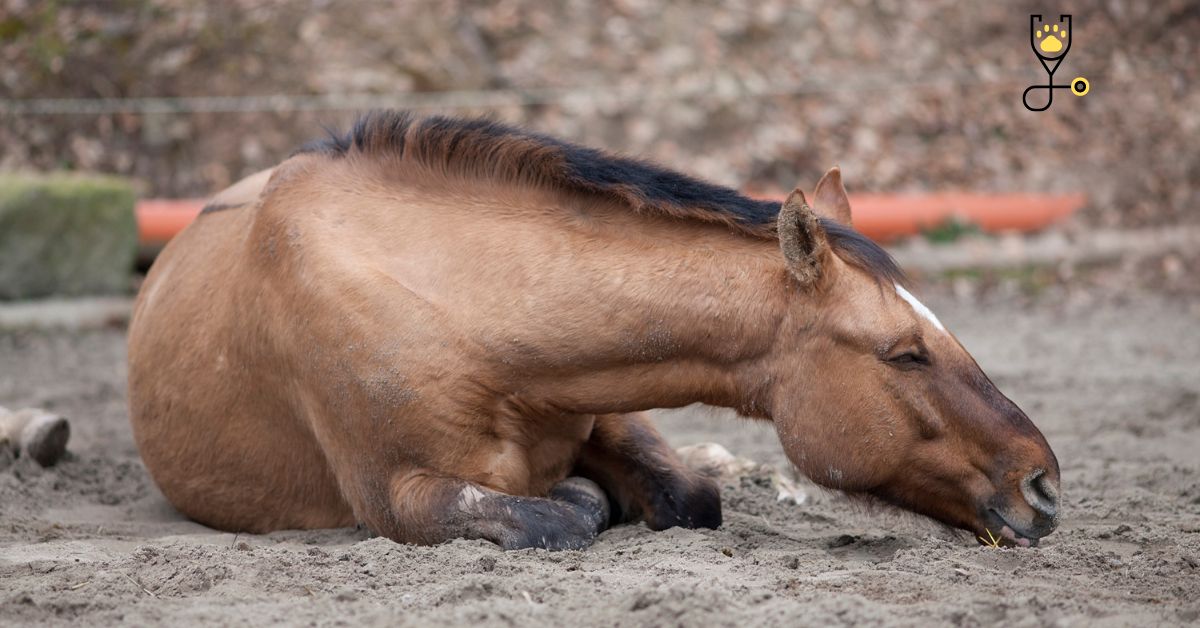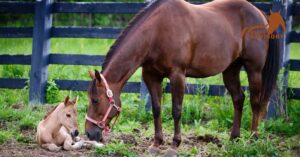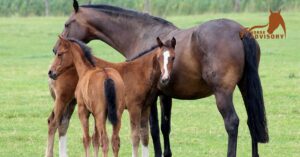Colic is a very serious condition that can affect horses of all ages. Although it can be caused by many things, understanding the symptoms and treating colic as soon as possible is the best way to ensure your horse’s health. In this blog post, we’ll discuss what colic is, the different causes, and how to treat this condition. We’ll also provide a few tips for keeping your horse safe from colic episodes. Stay tuned to learn more!
What Is Colic?
Colic is a condition that causes abdominal pain in horses. This pain can range from mild to severe, and it can last for a few minutes or several hours. In some cases, colic can even be fatal. There are many different causes of colic, but the most common include gastrointestinal problems, infection, and stress.
Types Of Colics In Horses
There are three main types of colic
1. gas colic: caused by trapped gas in the intestines
2. impaction colic: caused by a blockage in the intestines
3. Twist colic: caused by the twist of part of the intestine around itself or another structure.
Symptoms of Colic
The most common symptom of colic is abdominal pain. This pain is often described as cramping or throbbing, and it can make your horse restless and uncomfortable. Other symptoms of colic include:
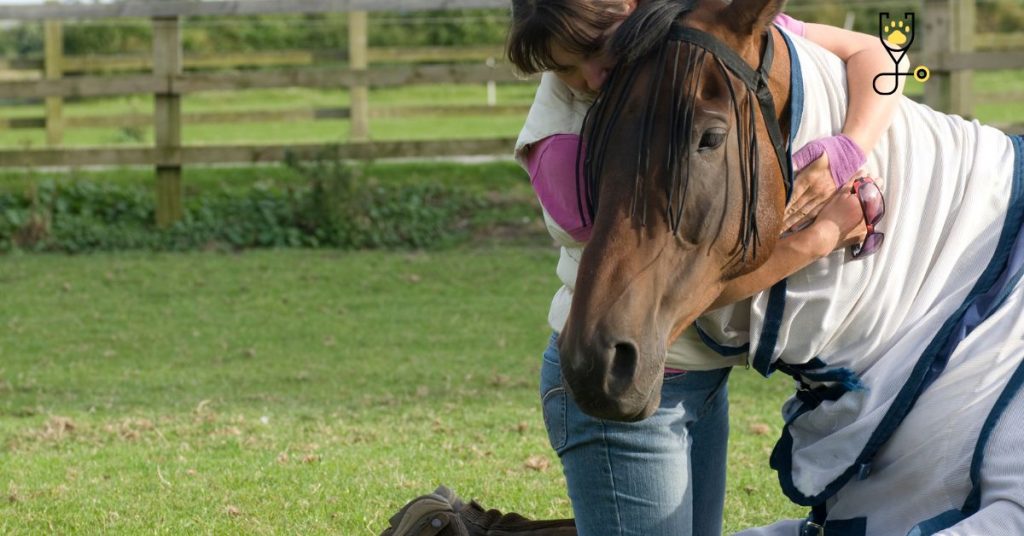
- Lying down for long periods of time: This is usually a sign that your horse is in pain and is trying to find a position that is comfortable.
- Rolling: This behavior is often seen in horses that are in severe pain. Rolling can also help your horse relieve some of the pressure in his abdomen.
- kicking at his belly: Your horse may kick at his belly as a way to relieve the pain he’s feeling.
- Pawing at the ground: Like kicking, pawing can also be a way for your horse to try to ease the discomfort he’s experiencing.
- Loss of appetite: If your horse doesn’t want to eat, it could be because of the pain he’s feeling. In some cases, horses will even stop drinking water.
- Sweat: You may notice that your horse is sweating more than usual if he’s suffering from colic.
- Heart rate: A horse’s heart rate will usually increase when he’s in pain.
If you notice any of these symptoms, it’s important to contact your veterinarian right away. Colic can be very serious, and it can lead to death if not treated promptly.
Causes of Colic
There are many different things that can cause colic in horses. Some of the most common include:
Gastrointestinal problems: One of the most common causes of colic is gastrointestinal issues. These can include anything from an intestinal blockage to ulcers. If your horse has any sort of gastrointestinal problem, it can cause him a great deal of pain.
Infection: Another common cause of colic is an infection. If your horse has an infection in his gastrointestinal tract, it can lead to inflammation and pain.
Stress: Stress is another factor that can contribute to colic episodes. If your horse is experiencing a lot of stress, it can lead to gastrointestinal problems and other health issues.
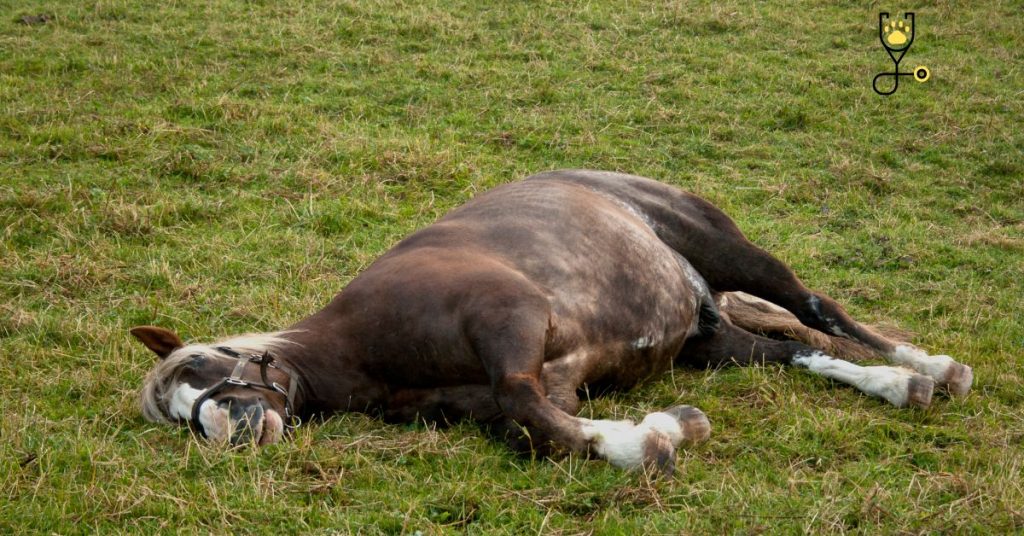
Treatment for Colic
If you think your horse may be suffering from colic, the first thing you should do is contact your veterinarian. He or she will be able to examine your horse and determine if colic is the problem. If it is, there are several treatment options that your vet may recommend. These include:
- Medication: Your vet may prescribe medication to help ease the pain your horse is feeling. There are a variety of different medications that can be used, and your vet will choose the best one for your horse’s particular situation. Some medicines that may be used include:
-Anti-inflammatory drugs: These can help reduce the inflammation in your horse’s gastrointestinal tract.
-Pain relievers: These can help ease the pain your horse is feeling.
-Gastrointestinal protectants: These can help reduce the risk of ulcers and other gastrointestinal problems.
- Surgery: In some cases, surgery may be necessary to treat colic. This is usually only done in severe cases, and it’s important to discuss all of the risks and benefits with your veterinarian before deciding if it’s the right option for your horse.
- Changes in diet: If your horse is suffering from gastrointestinal problems, your vet may recommend changing his diet. This can help ease the symptoms and prevent future episodes of colic.

Preventions of Colic
There are a few things you can do to help prevent colic in your horse. Some of these include:
-Feeding a high-quality diet: A healthy diet is important for all horses, but it’s especially important for those that are prone to colic. Make sure you’re feeding your horse a balanced diet that includes plenty of hay, fresh water, and nutrients.
-Exercising regularly: Exercise is important for all horses, but it can help reduce the risk of colic. Make sure your horse gets plenty of exercises every day.
-Managing stress: Stress is a common trigger for colic episodes. Try to keep your horse’s life as stress-free as possible, and make sure he has a comfortable place to live.
-Seeing the veterinarian regularly: Regular checkups with your vet can help identify any health problems that could lead to colic. Make sure you’re taking your horse to the vet at least once a year for a checkup.
Prognosis
The outlook for horses with colic depends on the underlying cause. Most horses with mild colic will recover with conservative treatment, such as changes in diet and medication. However, horses with severe colic may require surgery. The mortality rate for surgical treatment of colic is approximately 5-10%. With proper care and treatment, most horses with colic make a full recovery.
Conclusion
Colic is a serious condition that can be fatal if not treated promptly. If you think your horse may be suffering from colic, contact your veterinarian right away. With proper treatment, most horses make a full recovery.
Frequently Asked Questions
Q: What are the most common causes of colic?
A: The most common causes of colic are gastrointestinal problems, such as gas or intestinal blockage. Other common causes include stress, infection, and changes in diet.
Q: What are the symptoms of colic?
A: Symptoms of colic include pawing at the ground, kicking at the stomach, sweating, anxiousness, restlessness, and lack of appetite.
Q: How is colic treated?
A: Treatment for colic depends on the underlying cause. In most cases, conservative treatment is all that’s needed. This may include changes in diet and medication. However, in some cases surgery may be necessary.
Q: Can colic be prevented?
A: There are a few things you can do to help prevent colic in your horse. These include feeding a high-quality diet, exercising regularly, managing stress, and seeing the veterinarian regularly.
Q: What is the prognosis for horses with colic?
A: The outlook for horses with colic depends on the underlying cause. Most horses with mild colic will recover with conservative treatment. However, horses with severe colic may require surgery. The mortality rate for surgical treatment of colic is approximately 5-10%. With proper care and treatment, most horses with colic make a full recovery.
Q: What should I do if I think my horse has colic?
A: If you think your horse may be suffering from colic, contact your veterinarian right away. With proper treatment, most horses make a full recovery.
Colic is a serious condition that can be fatal if not treated promptly. If you think your horse may be suffering from colic, contact your veterinarian right away. With proper treatment, most horses make a full recovery.
